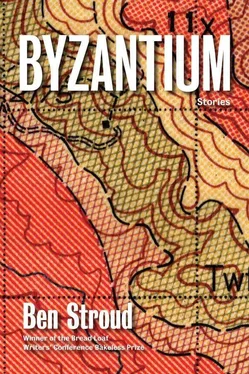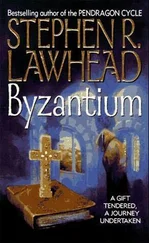But Burke was not satisfied. He recognized in the plan’s design a genius far beyond Guillard’s. Its purpose, in terrorizing Liesl’s father, was to force his resignation and cause the German government to fall. Burke couldn’t question Guillard — he hid himself in the embassy, claiming immunity — but when he tried the henchmen they gave him a name, Bloch. They never met the man, they said, nor knew who he was. But it seems they had told Burke enough. The next morning they were found murdered in their cells.
In the months and years that followed, Burke devoted himself to the study of Bloch, yet he discovered little about the fiend, why he turned to crime or how he came to dominate it. The bastard son of Joachim Bloch, spice merchant, and his Javanese mistress, Heinrich Bloch was given the running of his father’s spice house at a young age and used it as a front throughout his career. Living in the Nikolaiviertel as a simple burgher, Bloch kept a perfect cover. But Burke knew that Bloch arranged the bombing of Grand Duke Alexey’s carriage during his state visit, masterminded the Reichsbank Jewel Robbery, and plotted the mine collapse at Augsburg, in which a hundred men died. It was said that Bloch controlled a network of a thousand criminals in the city; that he was a past master of the bassoon, his instrument having once belonged to the only man he’d killed with his own hands; that as soon as he’d planned and seen the execution of a thousand crimes he would retire from the spice house and return to Java and live on a boat; that he demanded souvenirs from each of his terrible schemes and kept them in pine cabinets: a golden bolt from Alexey’s carriage, the preserved finger of one of the Reichsbank’s murdered clerks, a lump of bloodstained ore from Augsburg.
For six years Burke pursued Bloch but failed to prove his guilt in any crime. Some claim that Burke could have done so, but that he took a connoisseur’s pleasure in tracing each of Bloch’s plots and allowed him his freedom to ensure there would be more. Most, though, find such a suggestion preposterous. At the end of six years, in the winter of 1892, Bloch disappeared. The spice house was boarded up. Every trace of Bloch was gone. When Burke mentioned this to the papers, he said he suspected some new villainy but could not name it.
His Rooms, Part 2
A tantalizingly brief mention in a catalog of homes of the celebrated, published in 1890 and discovered only recently, describes a room in Burke’s house holding a dozen glass curios filled with ceramic blackamoors. “Some stand nobly, others ride steeds, and yet others kneel and bear gifts,” the catalog reads. “Blackamoors of all shapes and sizes, bareheaded or in turbans and fezes.” His clients sent them, which tells us much, but what tells us more is that he kept them. For all our research, Burke himself remains a mystery, yet here we have a clue. He had a passage of Pushkin engraved on a brass tablet and mounted beneath the central curio, which the catalog gives thus: “He felt that he was for them a kind of rare beast, a peculiar alien creature, accidentally brought into a world with which he had nothing in common.” He was perhaps not as at home in Berlin as is commonly assumed, and with this passage as a lens we can see traces of a deep melancholy in Burke’s dinners alone at the Café Bauer, his solitary trips to the shore.
There were yet other rooms whose contents we do not know, entire hallways unrecorded by history. Here speculation enters. Perhaps he had a dozen bedchambers, choosing among them depending upon his temper. Sometimes, thinking of Burke’s end, we picture him roaming the halls on a long night, never finding quite the right room.
His Love
Despite the invitations to hunting parties and long weekends at castles, or the occasional notice about his being seen with an actress, Burke’s life was solitary. He explained this as a necessity of his profession, claiming in one of his more famous maxims that a detective must form few attachments. But that did not mean his heart was immune to tender feelings. Through careful study, we have discovered evidence of a great passion.
In the summer of 1885 Burke was called to Wiesbaden to investigate a spate of jewel thefts. While pretending to be on holiday — attending the spa’s gatherings, circling the room with a glass of the waters — he met an Englishwoman named Olivia Ashdown. They were soon seen strolling through the Kurhaus Kolonnade and riding the funicular up the Neroberg, arms locked, engaged in long, close conversations. Never before had Burke so doted on a female. But the other bathers disapproved. Helmut Strauss, the noted horseman and one of Burke’s acquaintances, warned him that he went too far, that all were talking of his dark hands on her white bosom.
Burke promptly broke with Olivia, but after he solved the case (an elderly waiter was the thief) he stayed in Wiesbaden for a week. Such lingering is unprecedented; he always returned swiftly to Berlin at a case’s conclusion, yet this time he retired to a cottage above the city and sent for champagne and lobsters. Though the newspaper accounts make no mention of Olivia, it takes little effort to determine their break had merely been a ruse. When Burke finally returned to Berlin, the papers reported his surprisingly happy demeanor. With these details we have reconstructed the week he must have spent with Olivia: the long mornings in bed, the tender suppers in dishabille.
The evidence of Burke’s relationship with Olivia is scant, but it weighs heavily. Three months after Wiesbaden he was dining at Dressel’s when he received word of another rash of thefts, this time at Badenweiler. He left immediately, taking the express. Yet no record exists of the crimes at Badenweiler, nor at any of the other spa towns to which he was summoned every three months, and where he would stay for a week, lodged in seclusion outside town. He never commented on these “cases,” except to call them delightful.
His Greatest Case
How does one compare Burke’s cases, weigh the greatness of his reasoned deduction in one against that required for another?
The Wannsee Murder reportedly gave him the most fits. A body was found in an industrialist’s hunting lodge, arranged on a bier of pages torn from directories and volumes of Goethe. No one could identify the dead man, who was stripped of all his clothes. Burke took months to solve the case. The oddest is the Ware Killing, in which the murderer hired Burke to solve both crimes. Or is it the Bamberg Mystery, in which the bludgeoned duke seemed to come back to life? Then there are the cases he solved in single sittings, like the Theft of the Frankenheim Clock, the Affair of the Red Letter, the Case of the Hidden Blackmail, and his recovery of Müller’s collection of rare ferns, stolen in the light of day. Is that Burke at his most brilliant, his mind so keen he needn’t leave his study? Such cases are too numerous to count. The case that caught the most international attention was that of the Taskmaster: an underclerk in a shipping office who had organized an army of women — the daughters of Duisburg’s chief families — by sending them letters threatening them with slanders. He had ordered them to set fires for neither profit nor revenge, but for his pleasure alone.
When questioned on the subject, Burke would chuckle — a chuckle that stirred shivers in the listener, the reporters wrote — and say his greatest case was yet before him.
The Attempts on His Life
We know of three serious attempts made on Burke’s life.
The first came one evening while he was leaving a theater. A man ran up to him and stabbed at him with a dagger. The attacker missed, the blade passing through Burke’s coat, and was overpowered by a policeman. Burke identified him as Dr. Mildenberger, a government scientist who’d been ruined when the detective uncovered the Mosquito Ring’s plot to steal the war ministry’s supply of quinine.
Читать дальше











